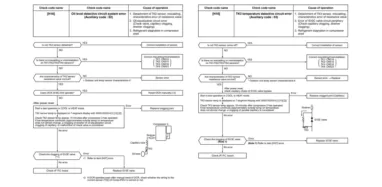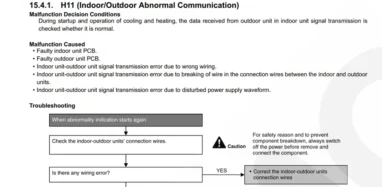The scorching heat wave during summer is forcing everyone to get an air conditioner.
However, only buying the air conditioner is not enough. You need to ensure that you install the air conditioner in the right place and give it the right space.
Many people ask us, how far apart should air conditioners be? This article will tell you how to correctly place an air conditioner and how much space you should leave around it.
How much free space there should be around an air conditioner?
If you are installing an air conditioner, you must provide at least one foot (24 inches) of free space for it from all sides.
It will help your air conditioner to work more efficiently and give the desired results.
However, most air conditioner manufacturers mention the clearance guidelines in the installation manual. Different air conditioners might require different free space around them.
Therefore, it is always better to read the instruction manual that comes with the air conditioner to get things right.
How far apart should AC condenser units be?
The outdoor unit of the air conditioner is known as a condenser.
If you have to install two AC condenser units close to each other, make sure to keep them at least 4 feet apart from each other.
The reason is that a condenser unit needs proper free space to work smoothly. If you will install two condenser units very too close to each other, they may start in-taking the warm air thrown out by the other condenser unit. Both units will compete for airflow and their performance will be badly affected. Hence, you will get a poor cooling effect and the energy bills will also skyrocket.
How much free space should there be on top of the air conditioners?
The air conditioner needs proper free space on every side so it can smoothly circulate the air in and out of the room.
You need to keep at least 5 feet (60 inches) of free space at the top of your air conditioner unit.
It’s because if there will be not enough space above your air conditioner, it will struggle to circulate the air properly. It will put more stress on the air conditioner. Hence, the AC will start using more energy and the risk of wear and tear will also increase. Consequently, you will have to spend more money on repairs and energy bills.
How far apart can the air conditioner be from the house?
If you want to relocate the outdoor unit of the air conditioner away from the house, the general rule is not to take it more than 50 feet away because it can affect the performance of the air conditioner.
However, the exact distance depends upon the model and size of the AC. You need to read the installation manual given by the manufacturer and follow the instructions given in it.
If you will take the AC unit too far away, you will not only have to pay for higher installation charges, but the efficiency of your AC unit will also decrease significantly.
What happens if you don’t leave enough space around the AC unit?
The air conditioner needs appropriate clear space around it to perform smoothly. Here is what will happen if you don’t leave enough space around the AC unit:
More energy consumption
Always remember that an air conditioner needs free space around it to perform proper air circulation.
When there are a lot of obstructions around the air conditioner, it struggles to circulate the air smoothly.
The pressure on the air conditioner increase and it starts working harder. As a result, it consumes more energy and you will see a surprising increase in the energy bills of your AC.
More wear and tear
As you read above, if there are any obstructions around the air conditioner, it puts more stress on the AC unit.
When there is a lot of stress on the air conditioner and it works harder for a long time, there is an increased risk of wear and tear. More parts of the AC unit can break down or malfunction.
Hence, you will have to spend extra money on repairing the air conditioner.
Poor cooling effect
The cooling efficiency of an air conditioner depends upon how well it can circulate the air in & out.
If the air conditioner does not have enough clear space around it then it will also struggle to produce good cooling.
You may have to run the air conditioner for very long to meet the temperature set on the thermostat. It will result in poor cooling, high energy bills, and increased wear and tear of various AC parts.
How far apart should the air conditioner be from plants?
Sometimes, you have to place the outdoor unit of the AC somewhere where you have a lot of plants around.
If that’s the case, you should keep the AC unit at least 24 inches (2 feet) apart from any kind of plant, grass, and shrub.
If the AC unit is obstructed by plants, grass, or shrubs, it will fail to circulate the air in & out of the house. This will put a lot of stress on the unit and cause its different parts to tear down. Moreover, the leaves can fall into the AC unit and create a lot of problems. The cooling of your air conditioner will also be severely affected.
How much clearance should you have around a split air conditioner?
Here are some tips that will help you determine how far apart you should place your split air conditioner:
For constructional obstructions
You must keep your split air conditioner at least 2 feet away from any kind of construction obstructions like a wall or fence.
For landscape obstruction
If there are many plants, grass, and shrubs around, you must keep the split AC unit at least 2 feet or 24 inches away from them.
For mechanical obstruction
If there are any other mechanical systems around like heating appliances, the exhaust vent of the kitchen, clothes dryer, and gas pipeline then you must keep the split air conditioner almost 8 feet away from them.
It will keep you safe from any safety hazard and also allow the air conditioner to work smoothly.
For another air conditioner
If you are installing two split air conditioners at the same place, there must a distance of at least 4 feet between the units. Otherwise, they will disturb the airflow of each other and decrease the cooling efficiency of the air conditioner.

